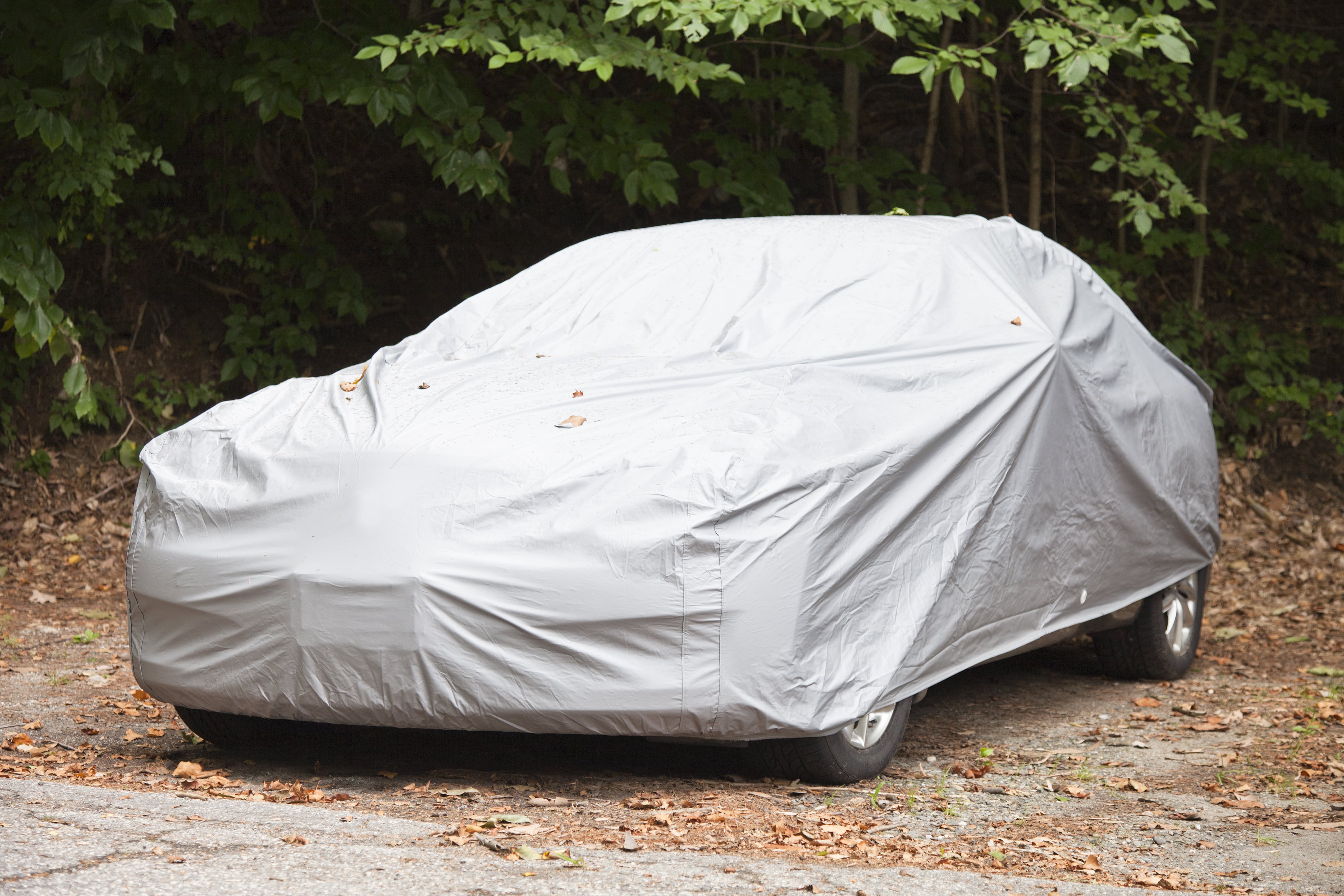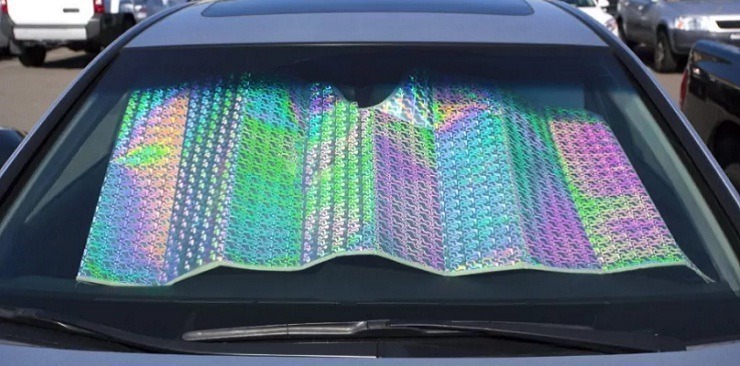Yes, it is good to cover your car in summer. This will protect your car’s paint from the sun’s ultraviolet rays and keep it looking new.
As the temperatures start to rise, you may be wondering if it’s a good idea to cover your car in summer. After all, the sun can be pretty brutal and your car is exposed to its rays for hours at a time.
There are a few things to consider when deciding whether or not to cover your car in summer.
First, think about where you live. If you live in an area with high humidity, covering your car can actually trap moisture underneath, which can lead to rust and other damage. If you live in a dry climate, however, covering your car can help protect it from the sun’s damaging rays.
Another thing to consider is how often you drive your car. If you only use it for short trips around town, it’s probably not necessary to cover it up. But if you’re driving long distances or spending a lot of time out in the sun, covering your car can help keep it looking newer for longer.
Ultimately, whether or not you choose to cover your car in summer is up to you. Consider all of the factors involved before making a decision so that you can make the best choice for your vehicle and driving habits.
Car Cover Disadvantages
If you’re considering using a car cover to protect your vehicle, there are a few things you should know. While car covers can offer some benefits, there are also some potential disadvantages to using them. Here’s what you need to know about the pros and cons of car covers.
One of the biggest advantages of using a car cover is that it can help protect your paint job. If you live in an area with harsh weather conditions or lots of pollen or bird droppings, a car cover can keep your paint looking fresh and new for longer. However, it’s important to note that even the best car cover won’t completely prevent all damage to your paint.
In particularly bad weather conditions, wind and rain can still cause small nicks and scratches in your paintwork.
Another advantage of using a car cover is that it provides an extra layer of security for your vehicle when it’s parked outside. A good quality car cover will deter thieves and vandals from targeting your vehicle.
And if someone does try to break into your vehicle, the added layer of protection provided by the cover may make it more difficult for them to succeed.
There are also some potential disadvantages to using a car cover.
Cool Cap Heat Blocking Car Cover
If you want to keep your car cool in the summer heat, a Cool Cap heat blocking car cover is the way to go. This car cover is made of a special material that reflects sunlight and helps keep your car cooler. It’s easy to use, too – just put it over your car when you’re not using it and it’ll do its job.
Should I Cover My Car in the Summer
Most car covers are designed to protect your vehicle from the elements, but in some cases, using a cover can actually do more harm than good. Here’s a look at whether or not you should use a car cover in the summer.
If you live in an area with high humidity, covering your car can trap moisture underneath the cover and lead to rusting and other problems.
If you must use a cover, be sure to choose one that’s breathable to allow air circulation.
In hot weather, a car cover can actually cause your paint to fade faster. The sun’s UV rays will reflect off the cover and intensify, causing premature aging of your paint job.
If you do opt for a cover, be sure to park in the shade whenever possible.
If you live in an area with lots of dust or pollen, covering your car can help keep it clean. Just be sure to wash both the inside and outside of the car before putting on the cover, as dirt and debris can get trapped underneath and cause scratches.
Does a Car Cover Protect from Cold
When it comes to protecting your car from the cold weather, a car cover can be a great option. But how effective are they really? Do they provide enough insulation to keep your car warm, or are they just a waste of money?
To help you make an informed decision, let’s take a closer look at how car covers work and whether or not they’re worth the investment.
How Car Covers Work
Car covers work by providing an extra layer of insulation for your vehicle.
They’re typically made from materials like polyester or PVC that are designed to trap heat and prevent it from escaping. This can help to keep your car warmer in colder temperatures, which can be essential for preventing damage from freezing temperatures.
However, it’s important to note that car covers will only be effective if they’re properly installed.
If there are any gaps or openings in the cover, then heat will be able to escape and your car won’t stay as warm. Make sure that the cover fits snugly around your vehicle before using it in order to get the best results.
Are Car Covers Worth It?
American Car Covers
In the market for a new car cover? You might be considering an American car cover. Here’s what you need to know about them.
American car covers are made from durable materials that will protect your car from the elements. They come in a variety of colors and styles to match your personal taste. American car covers are also easy to install and remove, so you can keep your car looking good as new.
One of the best things about American car covers is that they’re affordable. You can find them for less than $100, which is a great deal considering how much protection they offer. When shopping for an American car cover, be sure to read the product descriptions carefully to make sure you’re getting the right size and style for your vehicle.

Credit: www.carcovers.com
Is It Ok to Cover Car While Hot?
It’s perfectly fine to cover your car while it’s hot. In fact, it can actually help protect your car’s paint job. The sun can cause the paint on your car to fade over time, so covering it up while it’s hot can help keep the color looking fresh.
Just be sure to use a breathable cover so that moisture doesn’t get trapped underneath and cause any damage.
Should I Cover My Car from the Sun?
Most car owners know that it’s important to protect their vehicle from the sun. The sun can cause fading and damage to both the interior and exterior of your car. But what’s the best way to go about it?
Should you cover your car with a tarp or blanket when it’s parked outside?
Here’s what you need to know about protecting your car from the sun.
The sun can damage both the inside and outside of your car.
UV rays can cause fading, cracking, and peeling on the exterior of your car. They can also damage the upholstery, dashboards, and other surfaces inside your car.
You don’t have to park in a garage to protect your car from the sun.
There are a few different ways you can keep your car cool in direct sunlight.
One way is to use a windshield shade. These shades are designed to reflect sunlight away from your windshield.
They help keep your dashboard and steering wheel cool, too. You can find them at most auto parts stores or online retailers.
How Can I Protect My Car from Summer Heat?
We all love the summertime, but the hot weather can take a toll on our cars. The high temperatures can cause all sorts of problems, from making your car’s interior uncomfortable to causing serious damage to your car’s engine. But don’t worry, there are plenty of ways you can protect your car from the summer heat.
Here are a few tips on how to keep your car cool this summer:
1. Park in the shade whenever possible. This will help keep your car’s interior temperature down and make it more comfortable for you when you get in.
2. Use a sunshade on your windshield when you park. This will help deflect some of the sun’s rays and keep your car cooler.
3. Don’t leave anything in your car that could melt or spoil in the heat.
This includes things like chocolate, candles, sunscreen, and makeup. If it can melt in the heat, it doesn’t belong in your car!
4. Check your tire pressure regularly during the summer months.
What’S the Best Way to Keep Your Car Cool in the Summer?
Assuming you would like tips on how to keep your car cool during summer:
1. Park in the shade whenever possible, especially during the hottest hours of the day (roughly from noon to 3 p.m.). If you don’t have access to shade, use a sunshade for your windshield and windows.
You can find these sunshades at most auto stores.
2. Keep your windows up when driving. This will help reduce the amount of heat that enters your car.
If you need fresh air, crack open the windows slightly rather than rolling them all the way down.
3. Use your air conditioning sparingly. AC puts a lot of strain on your car’s engine and uses gas more quickly.
Try using the AC only when absolutely necessary, such as when it’s extremely hot outside or you’re stuck in traffic. When possible, open the windows and let fresh air circulate through the car instead of using AC..
4. Avoid using your parking brake in hot weather since it can cause premature wear on brake components . If you must use it, make sure to release it as soon as possible so that it has a chance to cool down..
15 Tips to Protect Your Car from Summer Heat
Conclusion
It’s no secret that cars get hot in the summer. The sun beats down on them, and the heat can be unbearable. Many people think that covers are a good way to keep their car cool, but is this really true?
There are some benefits to using a cover. It will protect your car from the sun’s UV rays, which can fade the paint and damage the interior. It can also help keep your car clean, since it will be protected from dirt and dust.
And if you live in a hot climate, a cover can actually help keep your car cooler by reflecting some of the sun’s heat.
However, there are also some drawbacks to using a cover. First of all, it can be a pain to put on and take off every time you want to use your car.
Secondly, if it’s not properly ventilated, a cover can actually trap heat inside your car instead of keeping it out. So if you’re going to use a cover, make sure it’s breathable and that you have good ventilation in your garage or storage area.
